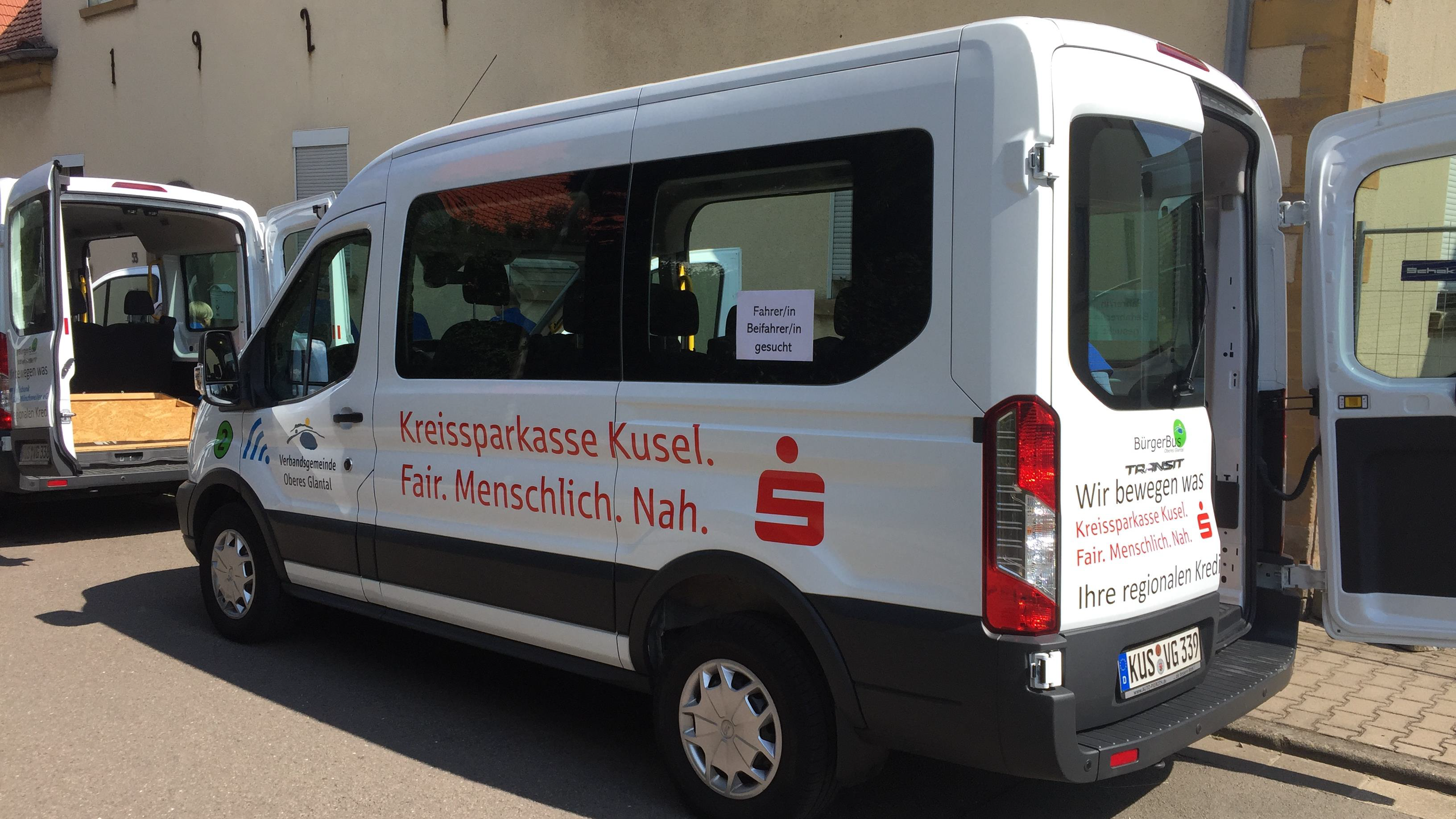
Burgerbus Oberes Glantal
Community-based transport service
Rhineland Palatinate, Germany
The Oberes Glantal Association is an administrative unit in the Kusel district – Rhineland-Palatinate, Germany. It was created on January 1, 2017 from the voluntary union of the municipalities Glan-Manchweiler, Schönenberg-Kübelberg and Waldmohr. It has a population of around 30 000 inhabitants and it groups 23 single communities, covering an area of 155.95 km2.
With around 5,700 inhabitants, Schönenberg-Kübelberg is the largest municipality in the Kusel district. The community, which has grown together from four hamlets, has positively grown since its formation in 1969 and performs central local functions for the most populous part of the district. Due to its centrality, the place has the appropriate facilities for day care, education and services, traffic and administrative facilities as well as opportunities for leisure, sport and culture.
The public transport services in the Kusel district are managed by Verkehrsverbund Rhein-Neckar (VRN), an association of local authorities and transport companies for the joint and coordinated implementation of local public transport in 24 districts, urban districts and independent cities and in the three federal states of Baden-Wuttemberg, Rhineland-Palatinate and Hesse.
Objectives
Public transport in the Obers Glantal area is available, but not sufficient to meet the mobility needs of rural households, especially those of vulnerable users such as elderly and mobility-impaired people. The community-based transport service Burgerbus Oberes Glantal aims to complement and integrate the public transport offer, increase mobility opportunities, especially for the older and younger populations, and contribute to the sense of community of the merged municipalities. A dedicated call center room has been established for managing the booking reservations. Two small buses with a maximum capacity of 8 passengers operated in the area with a door-to-door scheme. The Burgerbus Oberes Glantal has a strong social dimension. It wants to reduce the feeling of social exclusion of inhabitants, improve the local living conditions and improve the sense of solidarity of people.
Description of actions
The Burgerbus Oberes Glantal has improved since the first pilot implementation in 2017. However, it is still facing several issues. The planning of the routes at the dispatch center is very challenging for the volunteers. Integration between the community-service and the conventional public transport is still weak and the service operates only on a limited number of days per week. The Burgerbus Oberes Glantal aims to explore ways and opportunities for the implementation of smart tools and ITS system that could help volunteers and drivers in managing and operating the service. Moreover, it plans to analyse strategies for fostering partnerships with the surrounding municipalities to going outside the current borders, i.e. extending the area covered by the service. A specific workshop will be organised in October for 1) raising awareness about rural mobility issues in Oberes Glantal, 2) fostering the collaboration between the different actors and stakeholders responsible for rural mobility in the Kusel District, and 3) discuss future policy directions for improving local accessibility.
